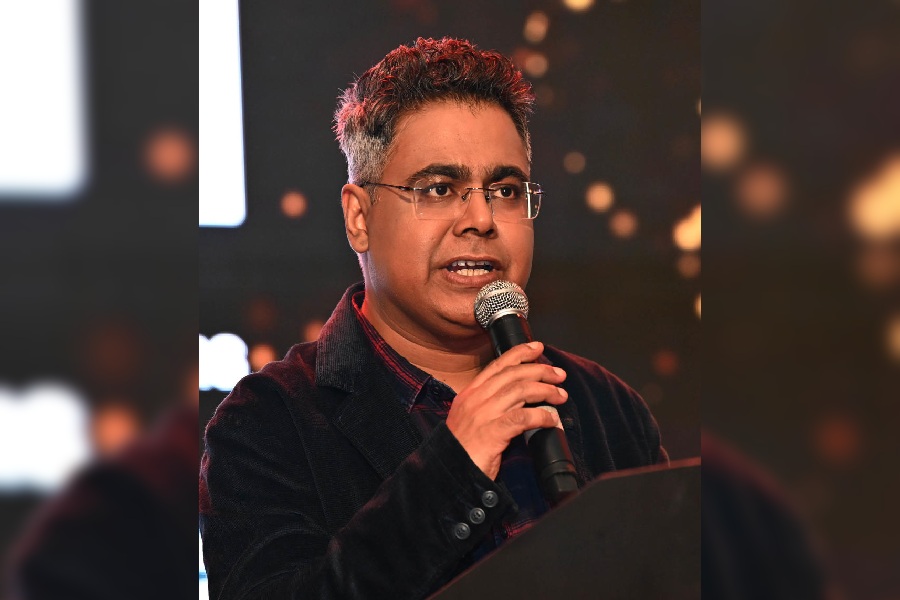The National Restaurant Association of India hosted the Indian Restaurant Summit 2023 at JW Marriott Kolkata on September 21 and 22. The two-day event saw visionaries and leaders from India’s food and beverage industry discuss some of the most crucial topics highlighting the factors significant for the growth of the nation’s vast restaurant industry, one of the biggest contributors to India’s economic growth.
Day 1 started off with a national anthem by Indian classical vocalist and Bollywood playback singer Sayani Palit. This was followed by a video introduction to NGO Anandaghar, a home for HIV+ and Cafe Positive run by those who have grown up in their homes.
Aditya Ladsaria, co-founder-cum-director, Chai Break, delivered the welcome note while Kabir Sure, NRAI president and co-founder-MD, Azure Hospitality; and Sagar Daryani, vice-president, NRAI and co-founder-CEO, Wow! Momo delivered the opening notes.
This was followed by a short session by B Sumant, ITC, Chair Food and Agri Committee, CII.
t2 gets you the lowdown.
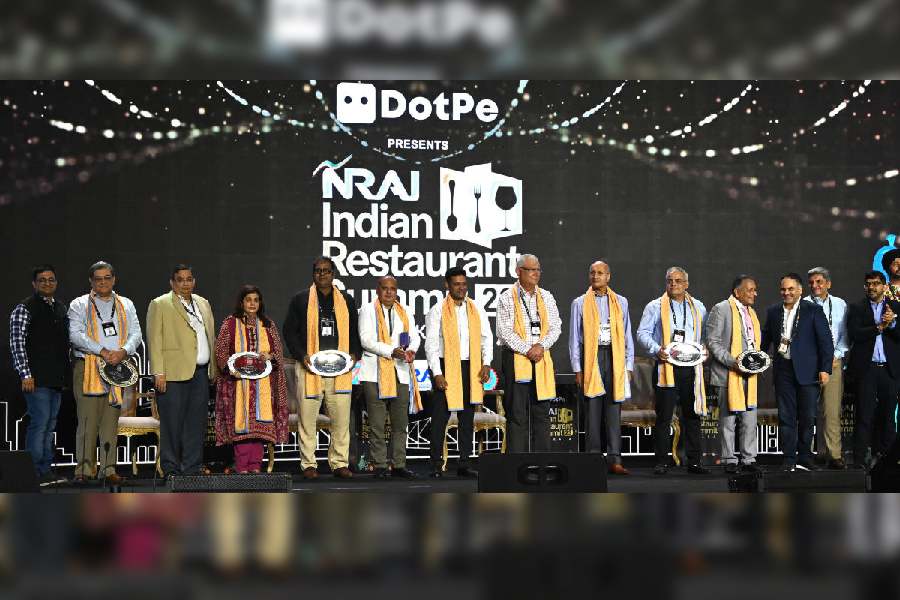
The event saw the felicitation of some of the most-celebrated ‘legends’ of Calcutta’s restaurant fraternity such as the likes of Sudip Mallick of Balaram Mullick & Radharaman Mullick, Nitin Kothari of Peter Cat and Mocambo, Md. Azhar of Aminia, Deepak Puri of Trincas, Pratap Daryanani of Oasis, Rajiv Ghai of Kwality Restaurant, Satish Gupta of Kusum Rolls, Aninda Palit of 6 Ballygunge Place and Sandeep Nowlakha of Garden Cafe among others.
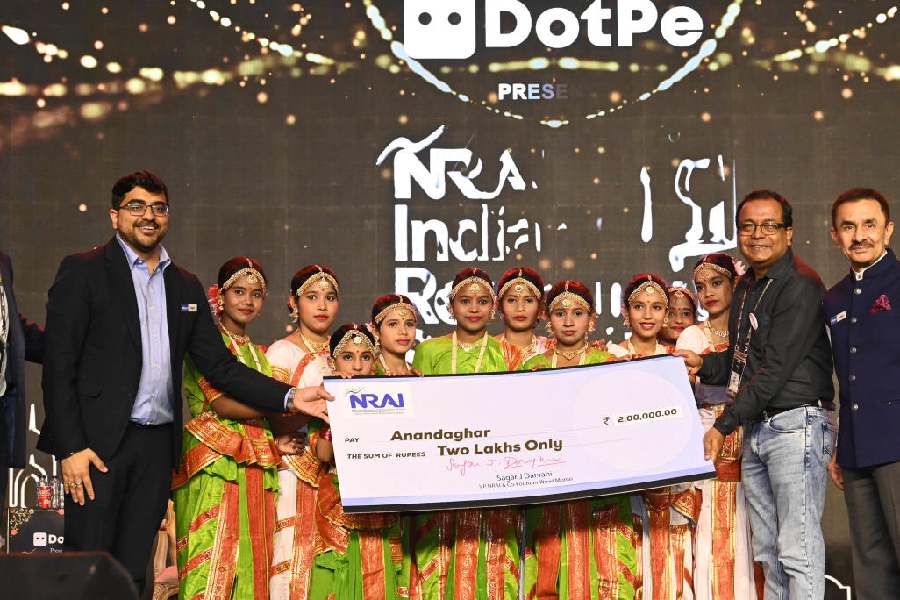
Children of Anandaghar, a home for HIV+ children, were felicitated at the event. Earlier they put up a beautiful dance performance.
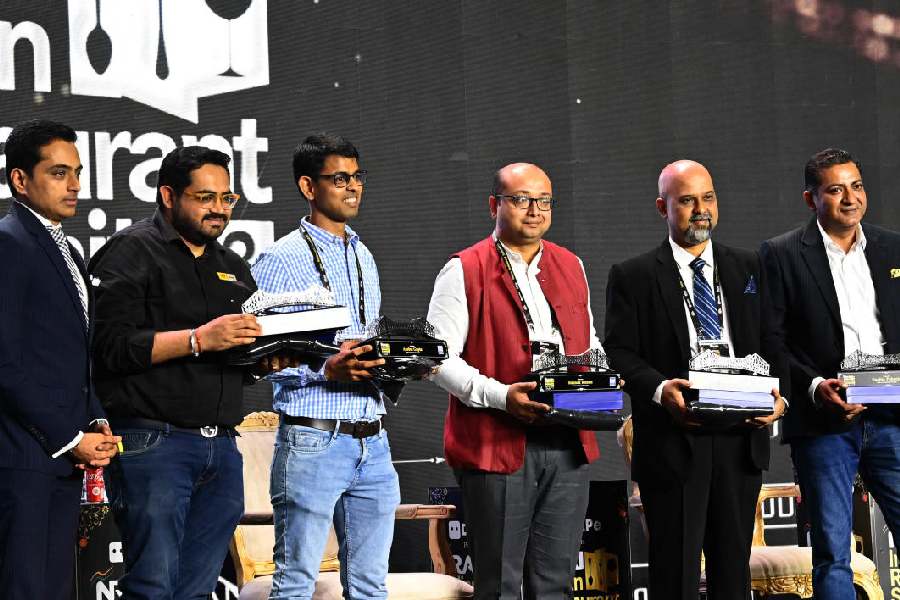
The day hosted with back-to-back informative sessions with expert panelists shedding light on various topics crucial for the sector’s development. Moderated by Muralikrishnan of Wow! Momo, the first session titled ‘Agility Is Not Taught, It’s Acquired: The New Mantra of Hospitality And Retail’ witnessed interesting observations being made by industry veterans like Anshul Gupta of Box8, Raunak Kundu of Bangalore Foodies Club, Pramod Dwivedi of Ambuja Neotia Group, Dr Vivek Pathak of NIPS Hospitality Group, Siddharth Bose of Bhojohori Manna and Sachin Pabreja of Eazy Diner. Speaking on whether patience has changed in consumers’ minds, Raunak observed: “Patience has changed. And we have, as a generation, become very impatient. One thing is that we have proved how agile we can be during the Covid phase. The biggest thing that hit us was demonetisation... then the GST rollout. And we have proved as an industry, as everyone who is an evangelist of the industry, that we are and we can be the best agile industry that can survive and see through all these big boulders.” Talking about the coexistence of dining and delivery in contemporary times, Sachin noted: “ After Covid, there was 50 per cent occupancy only but it is changing now. Dining is something like you go out and celebrate. You remember your birthdays, anniversaries.... Delivery will stay there. Because when you are alone, travelling to cities, or maybe at home. The experience of having hot and crisp food, you will never get it in delivery. So both remain the same. But dining will have better valuables.”
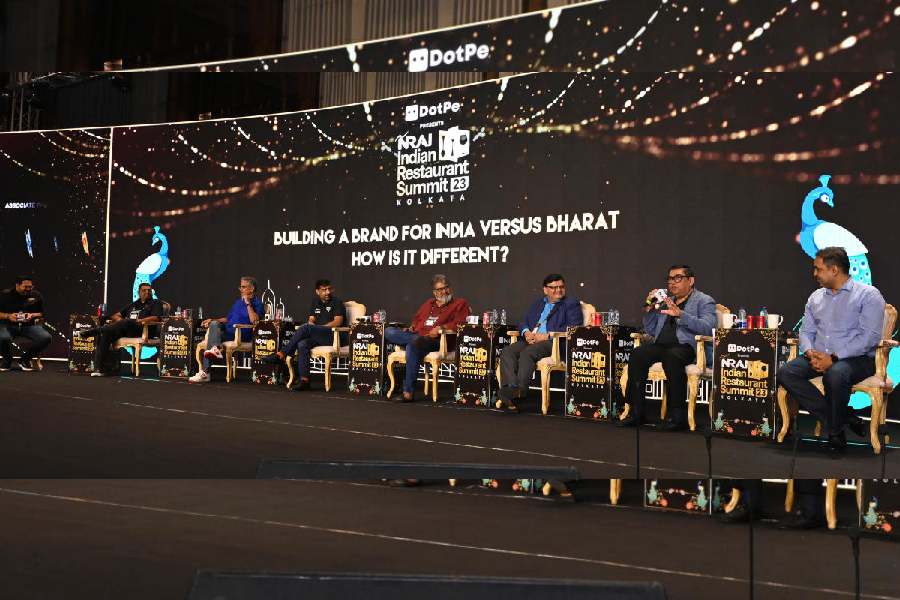
The third session was on ‘Building A Brand For India Versus Bharat: How Is It Different?’ Moderated by Wow! Momo’s Muralikrishnan again, the panel discussion featured food and beverage and hospitality industry leaders from across India such as Ankur Jain from Bira 91, Nitin Saluja from Chaayos, Anjan Chatterjee from Speciality Restaurants, Kallol Banerjee from Rebel Foods, Rohit Kapoor from Swiggy, Kenneth Serrao from OAKS Capital and Sanjay Singal from ITC. Answering a question on how he ensured logistics and city penetration happened seamlessly and his brand’s vision during the initial phase, Ankur said: “The ambition was very clear; we wanted to create a brand that could sit well on a shelf in New York City or in London as well as in a small bar in Kolhapur or Asansol. And everything that we do at Bira 91 is with that lens of scalability and resonance across a very diverse range of consumers.So, just ensuring that the product is available, your product is always in the refrigerator and the product is well made and is stable. I think all three are there”. Speaking on the cultural shift from home-made food to outside food, Rohit asserted: “I think there is a little bit of India and Bharat in all of us. Our business and strategies do not originate in our boardroom and they should not. They originate in how the kitchens of India behave. And the kitchens of India and the role we play in the kitchen actually change across different dimensions. So for example, for the longest time, home cooking and home-made food were related to the identity of the homemaker. And that’s changing in a wonderful way, but it’s not changing at the same pace all across. The power of the brand to assimilate into the evolving role of the kitchen is where the sweetest spot is. If you take away the act of cooking from kitchens of India, you feel very threatened.”
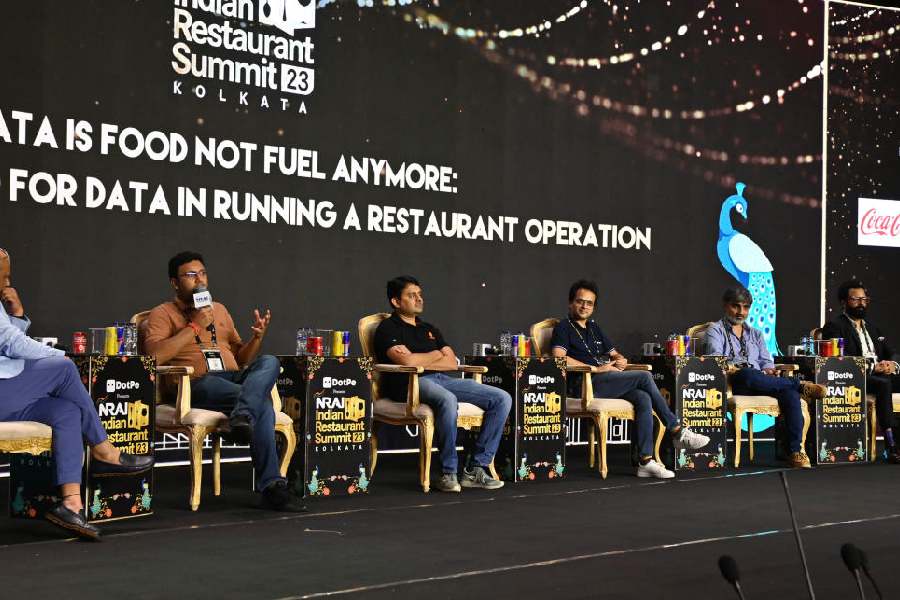
‘Data is food not fuel anymore; the growing need for data in running restaurant operation’, was the topic for the third panel discussion. Swapnil Bajpai of Swiggy, Anurag Gupta of Dotpe, Parthiv Patel of Petpooja, Naman Mawandia of Magicpin, and Krishan Arora of Grant Thornton Bharat were participants for this session that was moderated by Rahul Singh of The Beer Cafe. Speaking on the imminent need for data in F&B, Anurag opined that “today every business that is selling wants to know who they’re selling to, how much they’re selling. Now KYC is an integral element of the restaurant world as well, to understand buying behaviour aswell. The restaurant is the only sector that is a manufacturer as well as a retailer. Data ensures the efficiency of production for restaurants as they can streamline their sellingaccording to the demand.” Swapnil Bajpai of Swiggy spoke about “data masking”, saying that “we at Swiggy collect a lot of data, we still convert data to generate the right kind of insights as well. For example: data helps us to differentiate details like what sells the most vis-à-vis what is searched the most that can help restaurants bridge the gap between demand and supply.”
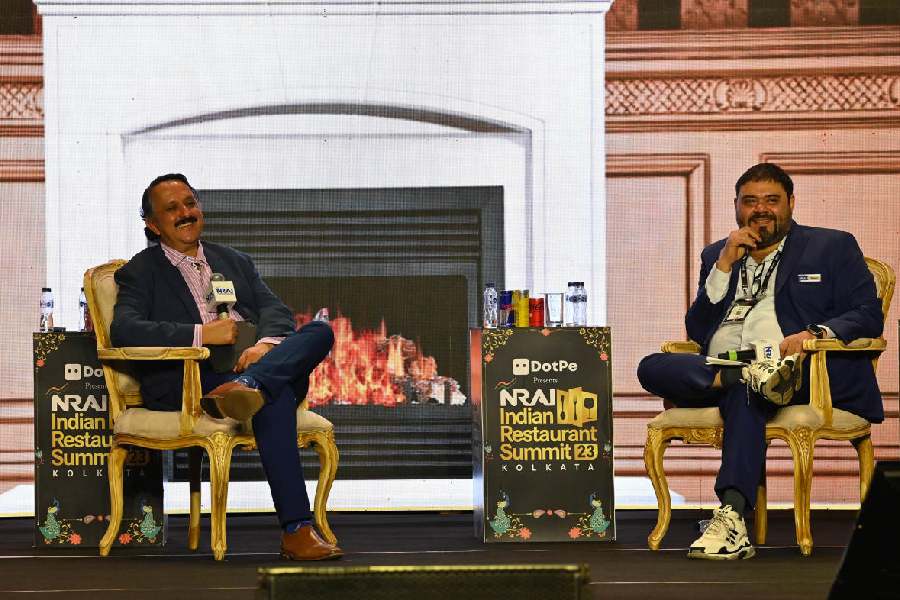
Next up was the Fireside chat: ‘Indian Restauranting: Yesterday, Today and Tomorrow’, conducted by Riyaaz Amlani of Impresario who had a candid tete-a-tete with Rohit Khattar, of Old World Hospitality, the man behind brands like Chor Bizzare, Comorin and Indian Accent. “He’s never been the man in the front. It’s always been his chefs that have been in front of the camera. Today we will deconstruct the enigma that is Rohit,” was Riyaaz’s introduction for Rohit. “It may have been before its time but it was at the cusp of when India was changing and even though we bled money initially, it caught on. People wanted light Indian food and flavour. It got a lot of press and word of mouth and all of a sudden the 55-seater gained a lot of prominence, and then we moved on to the Lodhi. A lot of people ask me do you find the space first or the concept? I always say that I have no idea. It depends on the situation,” said Rohit as he reflected upon the initial days of Indian Accent’s first stint in Delhi.
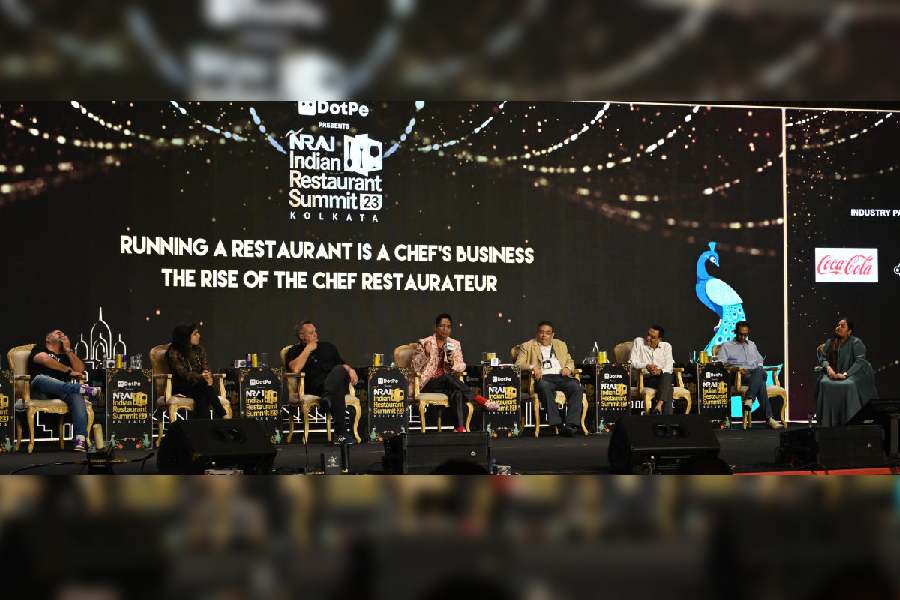
‘Running a restaurant is a chef’s business: the rise of the chefrestaurateur’ was the topic of the last panel discussion moderated by Zorawar Kalra of Massive Restaurants. Speakers in the panel included chef Vicky Ratnani, chef Shaun Kenworthy, chef Urvika Kanoi of The Daily Cafe, Dr Suborno Bose, Shripriya Gupta Seth of Little Pleasures, Ashvin Chadha of Anicut Capital, Aninda Palit of Savourites Hospitality, and chef Chalapathi Rao of Simply South. “I was inspired by my grandmother and she could do over 100 Indian mithais, and that’s where the magic happened for me. I remember when I entered Le Cordon Bleu London, there was no turning back. My motto is to create an experience and not just the cake. I always wear a chef’s hat, beyond the owner’s hat,” said Shripriya when asked whether the owner’s interests take over the chef’s or not. Speaking on the issue of capital faced by chefs, Urvika added, “My family doesn’t think that F&B can get in money. It’s a common problem faced by a lot of people like us, on how do we raise capital, and in fact initially people were reluctant when I moved beyond the family business and into F&B.”
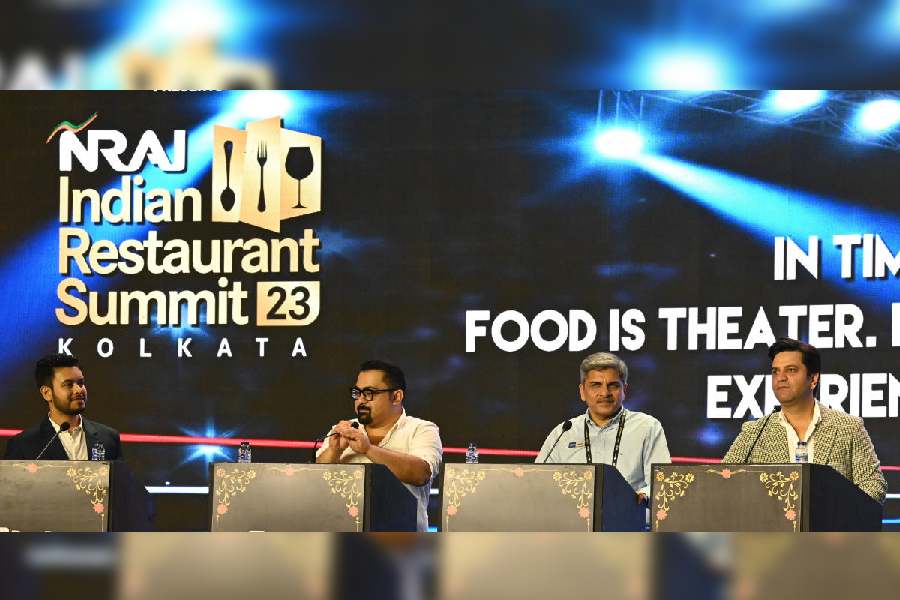
‘In times of Instagram, food is theatre. Is restauranting meant to be Experiential or Food First?’ was the topic for the the final food fight of the day. Chef Kunal Kapur, Amit Bagga of Daryaganj, Salman Shaikh of Bademiya in Bombay, Gauri Devidayal of Food Matters Group, Aseem Grover of The Big Chill Cafe, Raghavendra Rao of Rameshwaram Cafe, and Varun Tuli of Yum Yum Tree Group were in the fight moderated by Anurag Katriar of Indigo Hospitality. “I’m on the side of Instagram. For the first three years of our restaurant The Table, we didn’t have Instagram. But now there are no restaurants without Instagram. I feel both need to co-exist. In today’s time you cannot live without it,” addressed Gauri who argued for mutual support and coexistence. Chef Kapur partook the side of food and spoke on nutrition as the first and foremost concern. “Look and taste come second. Bhookh badi hai. Making food Instagrammable is a marketing tool. Though we don’t keep our eyes closed, but when we eat, the taste is what overpowers everything else. Instagram can draw you to the restaurant, but taste is what keeps you. It can backfire sometimes because some really great images might be misleading,” opined Kapur.
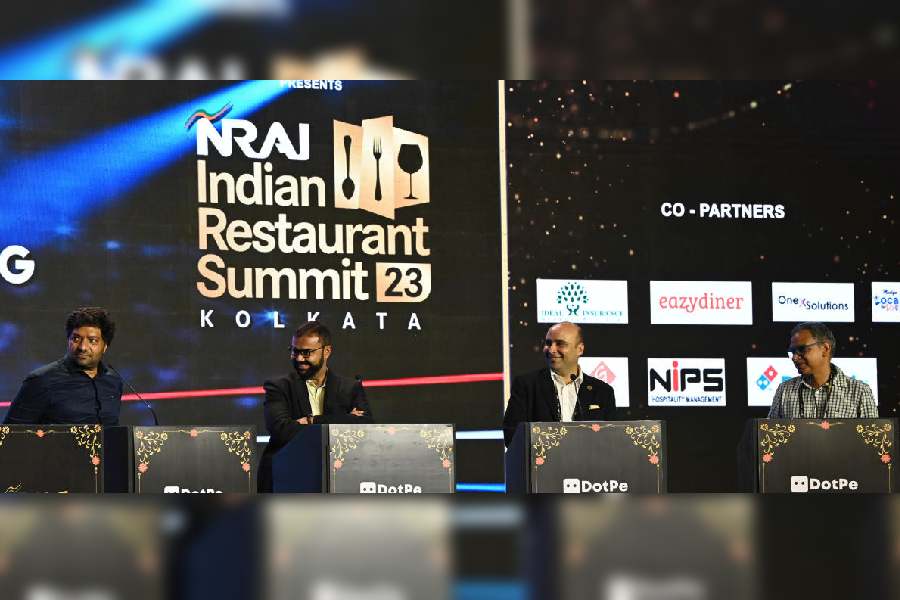
Vishal Jindal of Biryani by Kilo, Arnab Roy of Coco Cola India, Sameer Khetarpal of Jubilant Foodworks, and Saurabh Kalra of McDonald’s India were also a part of the food fight. Speaking on the need for collaboration, Arnab of Coca Cola said, “Make in India and made in India need to work together. This whole debate is a bit of an oxymoron because as much as foreign brands want to come to India, Indian successful brands also want to go beyond the country. The era of competition is over, and we’re living more in the era of collaboration.” “The bigger players will easily do well at a big level, but at the local level, the small-scale localised guys will win the game. Local food with its nostalgia takes over SOPs and standardisations. India’s time has come now,” opined Vishal.
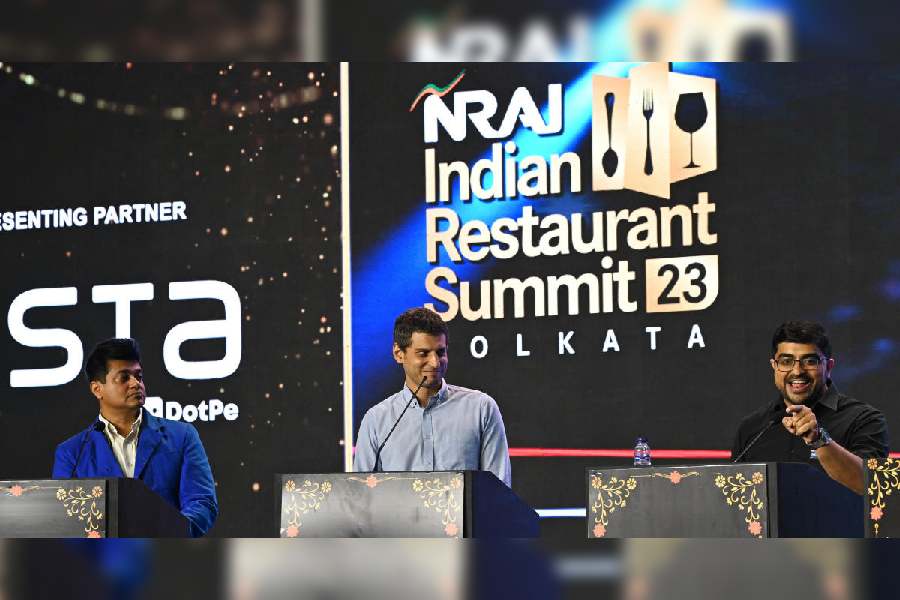
‘Make in India Vs Made in India: Building Brands Ground Up Vs Reinventing The Global Playbook’ was the topic for the first food fight, and on the side of Make in India were chef Saby Gorai, Sagar Daryani of Wow! Momo and Matt Chitharanjan of Blue Tokai. “Make in India has roots here and is hence more sustainable, whereas other brands coming from outside have a brand loyalty, but may or may not be as sustainable,” said Matt. “We’ve come up the long and hard way, in fact, I have a jurisdiction that proves that momos are Indian. Times have changed. You’ve got to support being vocal for local. You should support a local brand, that’s make in India for me,” argued an excited Sagar who was all about Indian brands making a mark.
SPOTTED
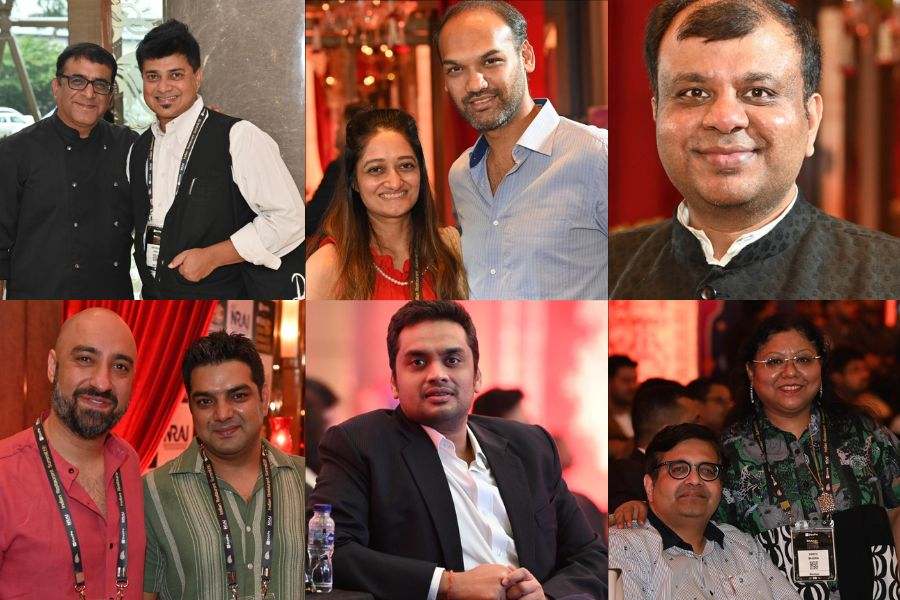
(Clockwise from left) Chefs Sharad Dewan and Saby Gorai; Aditya Mehta of White Castle Hospitality; Anirudh Poddar of Chai Break; Amit and Vanita Bajoria of Lord of the Drinks; Warehouse Cafe and Veneto; Harsh Sonthalia of Jalsa, Pls Dnt Talk and Soba Sassy; Joy Singh and Rahul Kundan of Raasta Cafe
NOMNOM
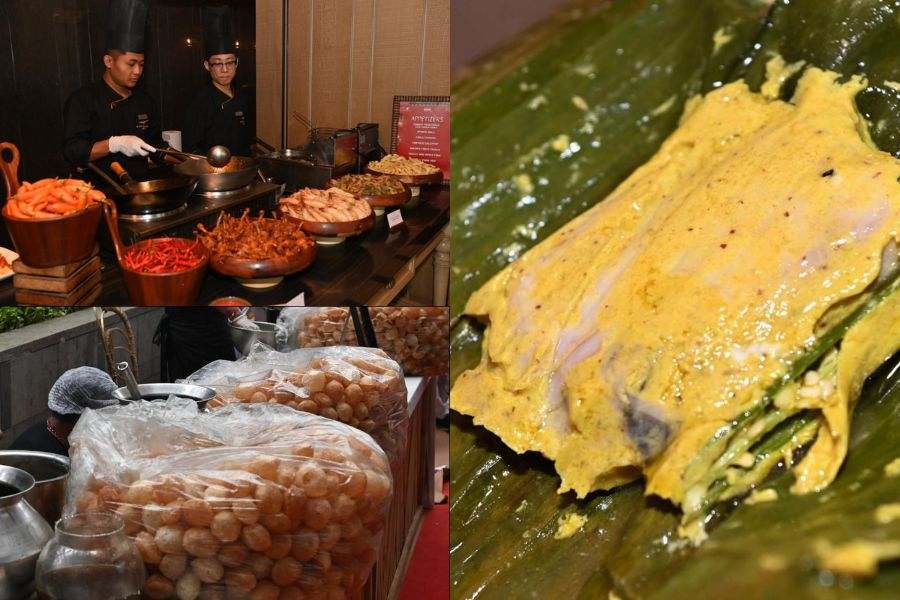
(Top left) Tangra-style Chinese was one of the popular cuisines on offer that had the crowds flocking in large numbers.
Puchka, chaat, bhel and chai were popular evening titbits that the crowd enjoyed.
The Rajbari segment dedicated to Bengali cuisine was also a hit with dishes such as paturi, and kosha mangsho being the major crowd-pullers.
